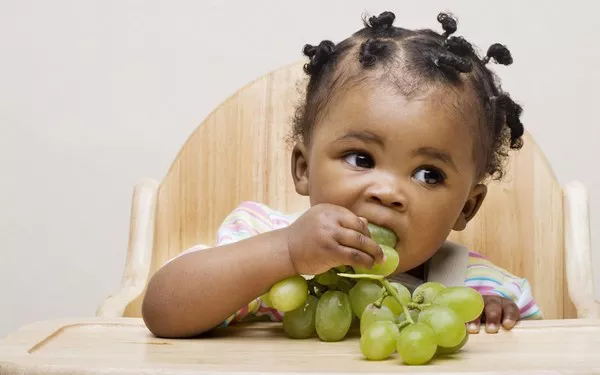As a parent, you want to provide your baby with the best possible nutrition to support their growth and development. One way to do this is by introducing them to a variety of fruits. However, not all fruits are created equal when it comes to infant nutrition. Today, we’ll explore some of the healthiest fruits for babies and why they should be included in their diet.
Avocado
Avocado is a nutrient-dense fruit that is rich in healthy fats, fiber, and a variety of vitamins and minerals. It is an excellent source of monounsaturated fatty acids (MUFAs), which can support healthy brain development and promote satiety. Avocado is also high in potassium, which can help regulate blood pressure and support healthy kidney function. In addition, avocado contains folate, a B vitamin that is important for healthy cell growth and development. This makes it an ideal food for pregnant or breastfeeding mothers who are looking to provide their babies with adequate folate intake.
One of the great things about avocado is that it’s easy to prepare and can be mashed or pureed for a smooth texture that is perfect for young babies. Avocado can also be combined with other foods like bananas or apples to create a delicious and nutritious meal for your little one.
Blueberries
Blueberries are a delicious and nutritious fruit that is packed with antioxidants and phytochemicals that can support brain health and boost the immune system. They are also a good source of fiber, vitamin C, and vitamin K. Blueberries have a sweet flavor and a soft texture that is easy for babies to chew and swallow.
One study found that feeding infants blueberries on a regular basis can improve their cognitive development, particularly in the areas of memory and learning. The antioxidants found in blueberries may help protect brain cells from damage caused by free radicals, while the fiber can support healthy digestion and prevent constipation. Blueberries can be served whole or mashed up for a smoother texture. They can also be combined with other fruits or served as a topping for yogurt or oatmeal.
Bananas
Bananas are a popular fruit for babies because they are easy to digest and have a sweet flavor that most babies enjoy. They are also high in potassium, vitamin C, and vitamin B6, which can support healthy growth and development. Bananas can be mashed, sliced, or pureed for a smooth texture that is easy for babies to eat.
One benefit of bananas is that they are a great source of prebiotic fiber, which can support the growth of healthy gut bacteria. This can improve digestion and immune function, which is especially important for infants who are still developing their gut microbiome. Bananas can be combined with other fruits or served on their own as a snack.
Apples
Apples are a versatile fruit that can be cooked or served raw for a crunchy texture. They are high in fiber, vitamin C, and antioxidants that can support healthy digestion and immune function. Apples can be peeled and sliced or cooked and pureed for a smoother texture that is perfect for young babies.
One benefit of apples is that they are a good source of pectin, a type of soluble fiber that can help regulate blood sugar levels. This can be especially helpful for babies who are at risk of developing type 2 diabetes or obesity later in life. Apples can be combined with other fruits like pears or berries for a delicious and nutritious meal.
Mangoes
Mangoes are a tropical fruit that is high in fiber, vitamin C, and vitamin A, which can support healthy eyesight and immune function. They have a sweet flavor and a soft texture that is perfect for babies. Mangoes can be pureed, sliced, or mashed for a smooth texture that iseasy for babies to eat.
One of the benefits of mangoes is that they are high in beta-carotene, a nutrient that is converted into vitamin A in the body. Vitamin A is essential for healthy eyesight and immune function, making mangoes an important food for infants. Mangoes also contain enzymes that can aid in digestion and support healthy gut function.
When introducing mangoes to your baby, make sure to remove the skin and pit and slice the flesh into small pieces that are easy to chew. Mangoes can be combined with other fruits or served on their own as a snack.
In conclusion, there are many healthy fruits that can be incorporated into your baby’s diet to support their growth and development. Avocado, blueberries, bananas, apples, and mangoes are just a few examples of nutrient-dense fruits that are rich in vitamins, minerals, and antioxidants. When introducing these foods to your baby, be sure to start with small portions and watch for any signs of allergies or digestive discomfort. With a little creativity and patience, you can provide your baby with a variety of healthy and delicious fruits that will help them thrive.


